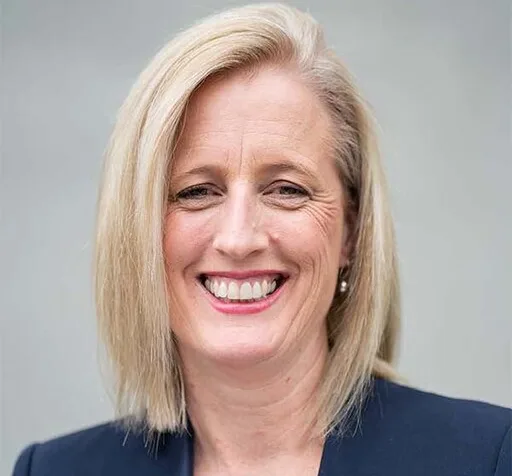Finance Minister criticizes the Greens’ ultimatum to cut interest rates, asserting it undermines economic responsibility and government cooperation
Finance Minister Katy Gallagher has unleashed a strong critique of the Greens, labelling their recent demands for unprecedented intervention in the Reserve Bank of Australia (RBA) as “out of control.” The Greens have threatened to withhold support for Labor’s significant reforms to the RBA unless the federal government pressures the bank to lower interest rates.
In an interview with ABC Radio, Gallagher condemned the ultimatum issued by the Greens’ economy spokesman, Nick McKim, calling it “crazy” and emphasizing the government’s commitment to maintaining responsible economic policies. “It’s economically irresponsible, and we won’t do it,” she asserted.
Gallagher’s comments come amidst growing concerns over housing affordability in Australia. The Greens argue that renters and mortgage holders are facing unprecedented hardships due to rising interest rates. McKim defended the party’s stance, stating, “Housing affordability, on the figures out this morning, has never been worse in Australia.” He reiterated that the Greens are using their political influence to push for lower interest rates to provide relief for struggling Australians.
Embed from Getty ImagesThe tension between the Greens and the Labor government highlights the mounting pressure on the RBA, especially after the U.S., Europe, and New Zealand recently lowered their interest rates. McKim dismissed the notion of the RBA’s independence, claiming that the government has the legal power to set interest rates. “If Jim Chalmers wants this bill passed, as he said he does, they know what they’ve got to do,” he stated.
Despite the political back-and-forth, Gallagher assured that the government remains committed to reforming the RBA and is working alongside the Coalition. However, the Coalition has expressed concern about the proposed changes, fearing that they could undermine the RBA’s independence. Shadow Treasurer Angus Taylor voiced apprehensions about the implications of establishing two separate boards within the RBA—one for interest rate decisions and another for governance.
The Greens’ ultimatum adds another obstacle to the Labor government’s legislative agenda, which has already faced difficulties in navigating a divided Senate. Last week, the Greens refused to support key bills aimed at tackling soaring housing costs, further complicating the government’s efforts to address the housing crisis.
As the political landscape intensifies, the outcome of this confrontation could significantly impact not only Labor’s ability to implement its reforms but also the economic relief available to Australians facing escalating housing costs.
Analysis
Political Perspective
The clash between Labor and the Greens underscores the shifting dynamics within Australian politics, particularly regarding economic policy and housing affordability. Gallagher’s strong condemnation of the Greens reflects a desire to maintain a united front within the government while emphasizing responsible economic management. The Greens’ aggressive tactics may resonate with voters feeling the brunt of the housing crisis, positioning them as champions of economic justice, but they also risk alienating moderate voters who prioritize fiscal stability.
Social Perspective
This political standoff highlights a broader societal debate about housing affordability and the responsibility of the government to ensure access to housing. As interest rates climb and living costs soar, many Australians, particularly younger generations, feel increasingly frustrated by the lack of viable solutions. The Greens’ call for action resonates with those demanding immediate relief, while Gallagher’s stance may appeal to those who fear reckless economic policies could exacerbate the crisis.
Racial Perspective
The implications of housing affordability extend beyond economic statistics, touching on issues of equity and access for marginalized communities. Low-income families and people of colour are disproportionately affected by rising housing costs. The Greens’ focus on lowering interest rates could provide necessary relief to these vulnerable populations, but it also raises questions about the long-term sustainability of such policies and their potential impact on investment in community housing.
Gender Perspective
Gender dynamics play a critical role in the housing crisis, as women are often the primary caretakers and financial decision-makers in households. Rising interest rates and housing costs disproportionately affect single mothers and women living alone. The Greens’ demands may be viewed as a rallying cry for these demographics, highlighting the need for policies that prioritize affordable housing and economic security for all.
Economic Perspective
The economic implications of the Greens’ ultimatum are significant. Gallagher’s concerns about economic irresponsibility reflect a broader anxiety regarding the potential fallout of drastic interest rate cuts. While immediate relief for mortgage holders is essential, the government must balance this with long-term fiscal health. The RBA’s independence is crucial for maintaining market confidence, and any perceived political interference could undermine that trust, leading to increased economic instability.
As the political landscape evolves, the challenge for both parties will be to find common ground that addresses the urgent needs of Australians while ensuring sound economic governance. The ongoing debate over interest rates and housing affordability is set to shape not only the political discourse but also the lived experiences of countless Australians in the months to come.
